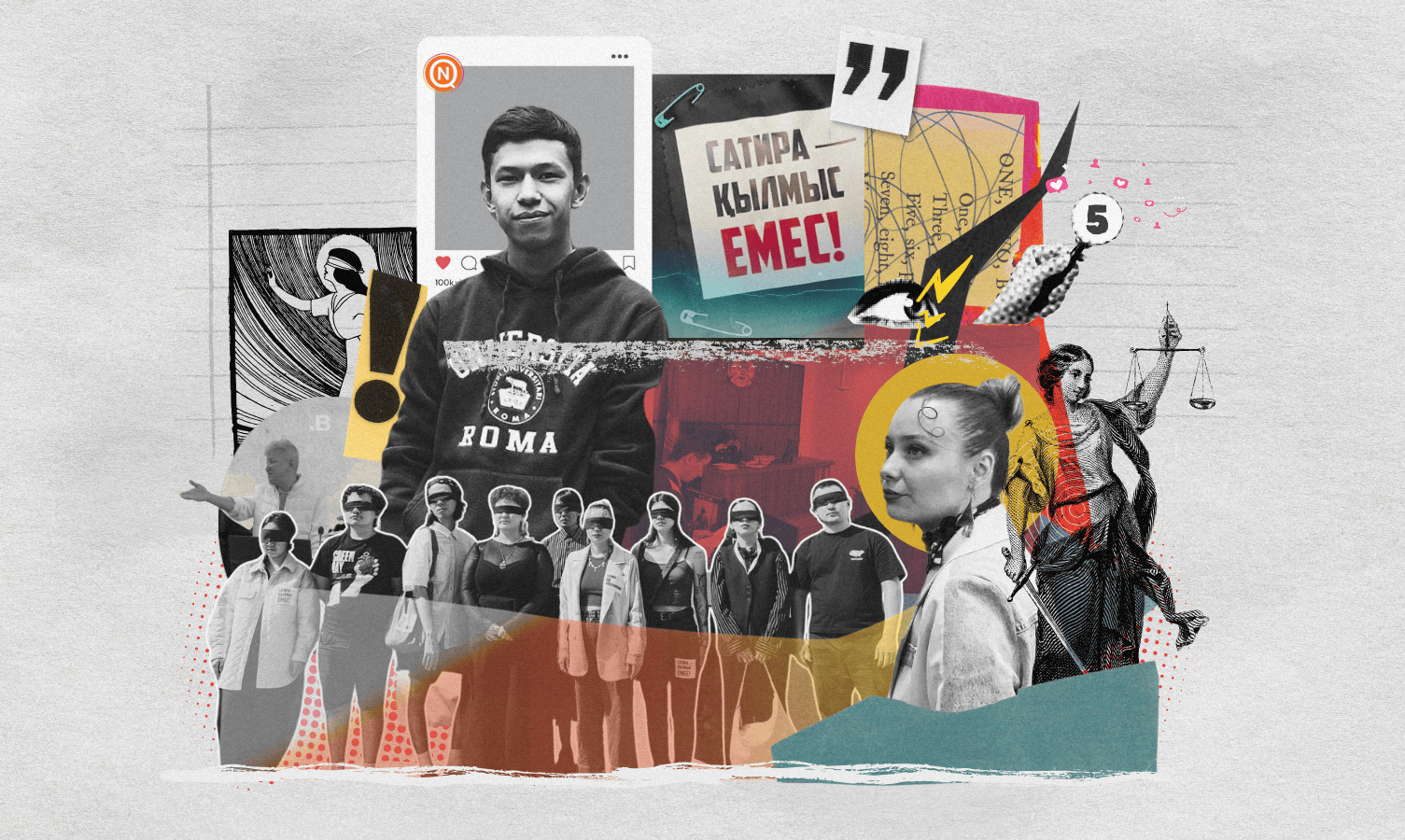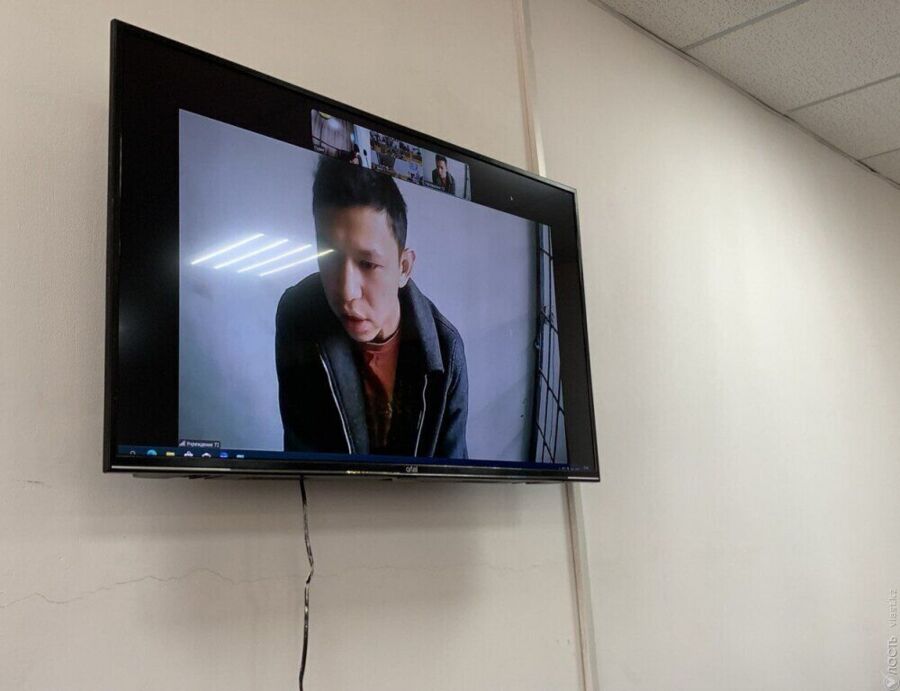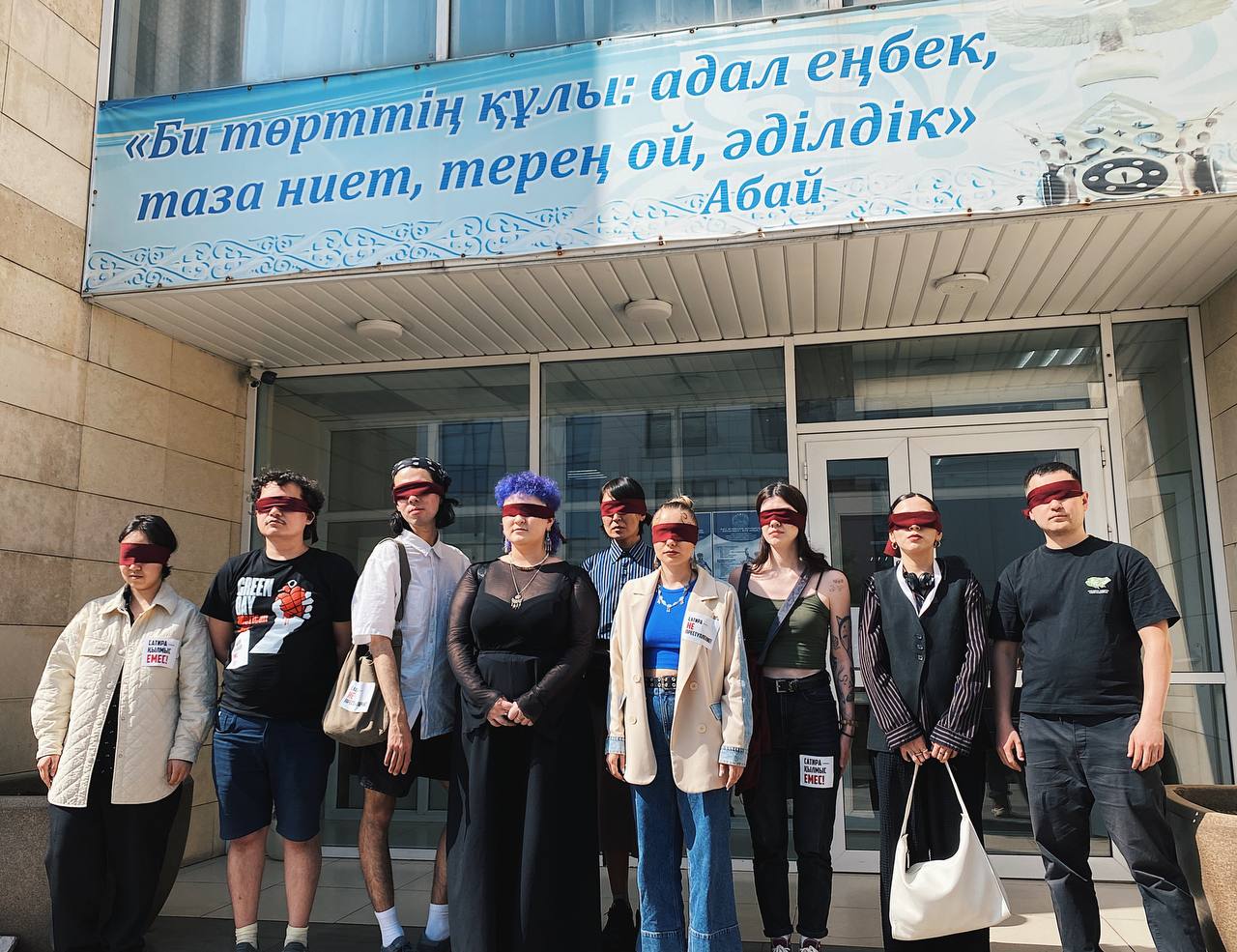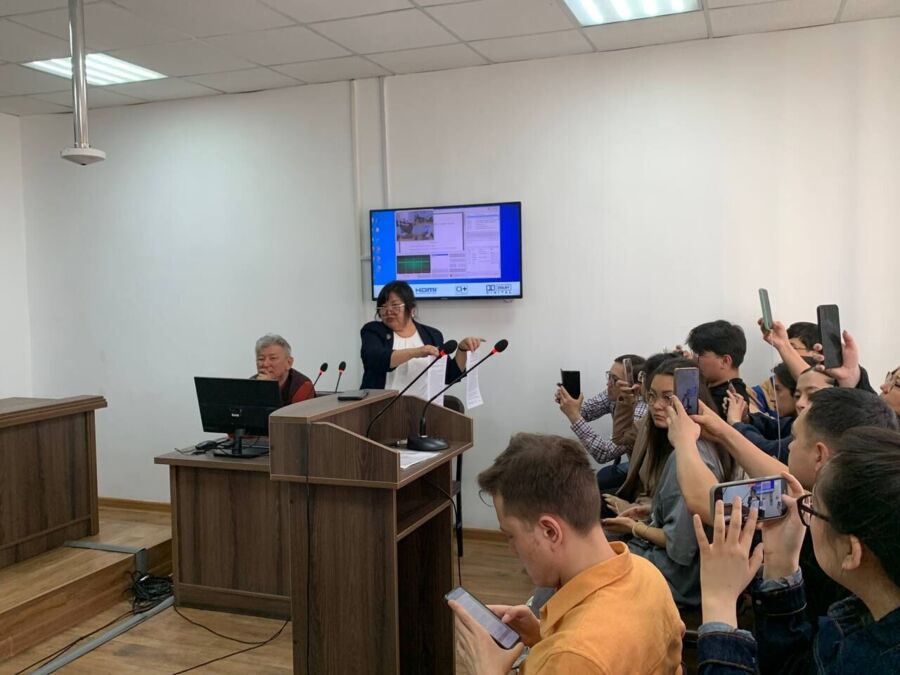Activist Temirlan Yensebek was not allowed to attend his own trial. While this could be a headline from Yensebek’s satirical site Qaznews24, this is unfortunately true.
On April 11 in Almaty, Judge Beinegul Kaisina sentenced the journalist to five years of “restricted freedom” (a form of non-custodial sentence) along with a ban on journalism and public engagement, among other penalties. In the small courtroom where the three-day trial took place, there was no room for the defendant.
Columnist Aisulu Toyshybek observed the first two days of the trial from outside the courthouse. Here, she reflects on the lessons learned from case.
Осы мақаланың қазақша нұсқасын оқыңыз.
Читайте этот материал на русском.
Lesson 1: The Creative Is Political
“The personal is political” is one of the best-known slogans of the feminist movement, popularized in the 1960s and 1970s. Over the decades, it inspired countless reinterpretations. It became a cornerstone of feminist thought and broader social movements, including intersectional feminism. To paraphrase it: Creativity is political.
Creativity is about making something new—seeing beyond the usual frameworks and turning bold ideas into reality. The way we dress, what we believe in, what we eat for breakfast, our values and social norms—all of it was created by someone, and eventually adopted by many.
To create is to challenge—whether it’s tradition, nature, chance, or even the divine. Without it, there can be no development, because by creating something new, we change lives. Change often starts quietly, like a seed in the soil, but over time, it transforms the landscape. In that same way, creative people change a country by reshaping norms through meaning and imagery. How could something so powerful not be political?
Creativity is inherently political. Sometimes it turns radical, sometimes not, but it always has a bold and genuine side. Temirlan Yensebek, 29, found his own creative way to deal with the realities of life in Kazakhstan. The satirical content he kickstarted a few years ago clearly struck a chord: Qaznews24 garnered 75,000 followers. The government’s response? Isolation. They put him in a detention center, held the trial in a remote neighborhood, and denied livestreaming and public access.
Lesson 2: Family Can Be a Source of Strength
Marat Turgymbai, Temirlan’s father, has supported him from the beginning and maintained open communication with the public. He served as his son’s public defender alongside attorney Zhanar Balgabayeva, given that Temirlan was not even allowed to be present at his own trial. Outside the courtroom, his fiancée Mariya Kochneva continued to advocate for him. On April 10, she was detained and fined along with other activists.
Lesson 3: Friends and Allies Will Show Up
Temirlan’s is not the only instance of politically motivated prosecution in Kazakhstan, but it stands out because of the strong network supporting him. Members of Oyan, Qazaqstan! and the Qaznews24 community launched a campaign on 17 January 2025, advocating for his release. Five people held solo pickets after his arrest. Over the three months that followed, while Temirlan awaited trial, friends wrote to him, brought food and supplies, and showed up at court in person.
Lesson 4: Public Attention Matters
In politically motivated trials, the level of public attention can be just as important as the legal proceedings. Banning livestreams, denying entry to observers, and excluding Temirlan from the courtroom were all efforts to erase him from the public eye, to bury his story at the margins of the news cycle.
Public attention is one of the few tools citizens still have when courts, investigators, and police operate as a single repressive machine.
When a case gets attention, the system has to account for public sentiment. While this does not guarantee fairness, it can influence the course of the trial, from the sentence wording to conditions of detention, or the course of the appeal. Public awareness becomes a form of protection. Imperfect, but real. Everything counts: likes, shares, comments, posts, protests, statements. When the public stays engaged, it sends a message: we see and remember.
Judge Kaisina’s decision to speed up the trial, likely to prevent Temirlan’s supporters from organizing, only highlights how crucial public participation really is.
Lesson 5: It’s Okay to Be Afraid. But Do Something
In a statement, Temirlan addressed the court, warning that his prosecution threatens the future of independent journalism in Kazakhstan:
“If you impose these restrictions on me, my colleagues will unfortunately be afraid to do their jobs.”
This trial was not just a case against Temirlan. It became a clash of two value systems: one that represents human dignity, freedom, and life; and another that sees people as disposable tools. The verdict was not only an attack on independent journalism, but on freedom of expression and creativity.
Now is the time to decide which system we want to support.
And before we choose, we must remember: In a system where human life is worthless, there are no safe topics, there is no statute of limitations.
Curated creativity, where artists must censor themselves, is a kind of spiritual death. In such conditions, culture decays and the audience is impoverished—both emotionally and materially.
Поддержите журналистику, которой доверяют.











